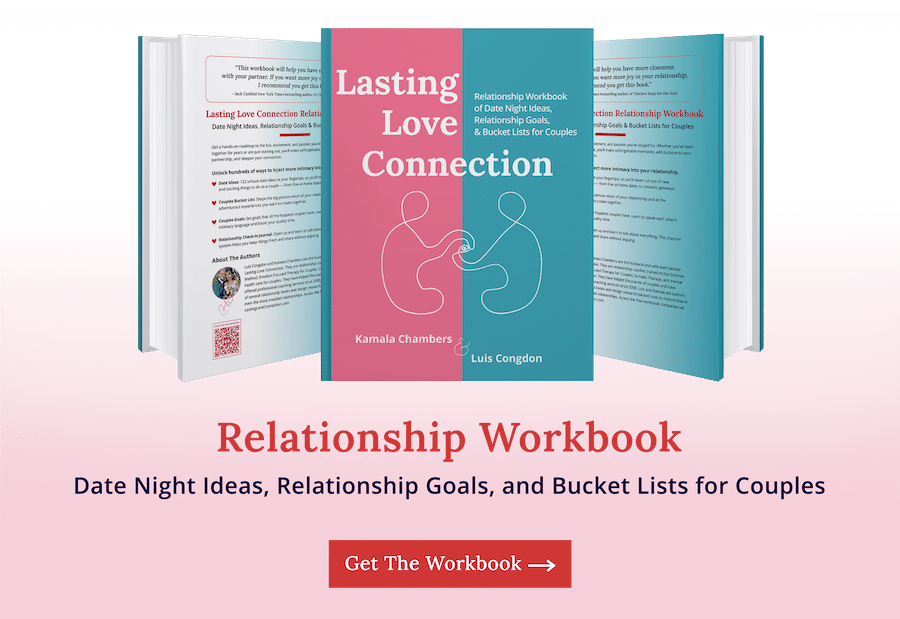What would you consider the most essential characteristics of a healthy relationship?
Many of us desire a loving relationship, yet we often lack clarity on what that entails.
In this article, we will explore the key characteristics of healthy relationships.
Additionally, we will discuss practical ways to integrate these characteristics of a healthy relationship and healthy behaviors into your life and enhance your partnership.
Table of Contents
What are the benefits of healthy relationships?

Healthy relationships offer a range of powerful benefits for your physical and mental health.
A few key advantages of being in a healthy relationship
- Increased happiness.
- Reduced stress levels.
- Lowered risk of anxiety, depression, and other mental health issues.
- Enhanced self-esteem.
- Physical health benefits (such as lowered blood pressure, better immune function, and increased longevity).
- Increased financial stability.
On the other hand, staying in an unhealthy relationship can harm your well-being.
6 characteristics of a healthy relationship
What are the characteristics of a healthy relationship?
Let’s explore some of the fundamental components of successful romantic relationships.
Although there is no such thing as a perfect relationship, you can use these strategies to create a more fulfilling partnership than you knew was possible.
Related Reading: Healthy Vs. Unhealthy Relationships
1. Characteristics of a healthy relationship: honest communication

Effective communication is one of the most important things in successful relationships.
Open communication means complete transparency and honesty with another person.
This level of vulnerability may seem daunting, especially if you’ve experienced emotional pain or rejection in your past relationships.
To talk about anything with your partner, you must develop emotional safety.
Feeling emotionally safe allows you to talk about your feelings, beliefs, fears, and hopes for the future without fear of judgment. You can trust that your partner will accept you completely for who you are.
Also, remember that open communication in relationships is a two-way street.
Good communication involves being honest when you talk to your partner and practicing active listening.
As your partner shares, listen without interrupting.
Ask follow-up questions to gain a deeper understanding of your partner’s perspective.
Once you establish a habit of open communication, it will become easier to resolve conflicts and ensure both of you get your needs met.
Maintain an open line of communication by checking in with each other regularly.
2. Characteristics of a healthy relationship: trust

Trust plays a vital role in building and maintaining the characteristics of a healthy relationship.
We all want to feel safe and secure with our partners, and trust makes that happen.
Every time your partner is there for you, it strengthens trust. Even the smallest of actions helps foster trust.
You can build trust in relationships by
- Being honest with your partner (even when it’s difficult).
- Listening to your partner’s feelings without judgment or criticism.
- Following through when you agree to do something.
- Talking to your partner before making a big decision.
- Respecting your partner’s boundaries.
Since trust is so crucial for successful relationships, it can be catastrophic when trust is broken.
Several behaviors can erode trust, such as repeated lying, infidelity, or having your feelings invalidated.
A lack of trust is often the main reason why a relationship ends.
If you and your partner are struggling with broken trust, seek the support of a marriage counselor or coach who will lead you through repairing the damage and rebuilding trust.
Book a complimentary couples consultation to see if working with us would be a good fit.
3. Characteristics of a healthy relationship: mutual respect

With the characteristics of a healthy relationship, you and your partner respect each other’s beliefs and opinions even when they differ.
You don’t belittle each other’s feelings or experiences.
Further, healthy couples prioritize respecting each other’s physical and emotional boundaries.
Healthy boundaries allow you to feel safe and respected in a relationship.
For instance, you talk to your partner because you feel uncomfortable when they make jokes about a certain topic. If your partner respects your boundaries, they listen to your concerns and consider your needs.
However, if they are not respectful of your boundaries, they may continue with the behavior that upsets you.
This lack of mutual respect can be detrimental to the relationship.
A lack of mutual respect in a relationship can easily lead to unhealthy relationship dynamics where one partner exerts power and control over the other partner.
4. Characteristics of a healthy relationship: compromise

In relationships, you and your partner are bound to disagree at times.
In those times, it’s important to compromise.
Compromising in relationships involves talking about your needs and preferences and finding a middle ground that works for both partners.
For instance, let’s say you and your partner disagree on where to spend Thanksgiving.
You want to travel to visit your family, and your partner would prefer to stay in town and have a relaxed day with your mutual friends.
After talking it through, you devise a plan to split the holiday weekend in a way that works for both of you.
Think about a recurring conflict that you and your partner are having and brainstorm ways in which you and your partner can compromise so your needs are met.
Related Reading: Improving Emotional Intimacy
5. Characteristics of a healthy relationship: intimacy

Another important part of the characteristics of a healthy relationships is making a consistent effort to keep intimacy alive.
In the initial stages of a relationship, we are filled with a rush of love hormones, wanting to know everything about our partner.
However, as time passes, we tend to become complacent.
The demands of work and family life can take over, making it challenging to stay connected.
To reignite intimacy, spend time with your partner regularly.
Schedule weekly date nights that allow you to break out of your daily routine and focus on building your connection.
For 100+ unique date ideas to keep things fresh, pick up the Relationship Workbook.

6. Characteristics of a healthy relationship: affection

Affection is the expression of care, love, and fondness between partners.
Show affection towards your partner by
- Loving physical touch (outside sexual activity).
- Expressing words of affirmation like “You are so special to me.”
- Playing the Appreciation Game.
- Offering a meaningful compliment.
- Asking them to engage in an activity you both enjoy.
- Giving a thoughtful gift.
When you show affection, you make your partner feel special and remind them how much you value them.
Marriage coaching helps you learn the keys to a successful relationship
If you and your partner want to have the characteristics of a healthy relationship yet find yourself stuck in unhealthy patterns, seek professional support.
Marriage coaching provides a safe space to address relationship issues, adopt healthier patterns, and move toward the kind of relationship you desire.
If your relationship is in trouble, schedule a free coaching consult to turn things around.
What is the key to a happy relationship?

Characteristics of a healthy and happy relationship include effective communication, trust, honesty, mutual respect, healthy boundaries, shared values, spending time together, and support. Seeking the guidance of a marriage counselor will help you develop these healthy characteristics and strengthen your relationship.
What does healthy love feel like?

A healthy relationship is characterized by mutual warmth and affection, a sense of safety, and respect. A good relationship enriches your life without taking over it entirely. It allows you to retain your individuality while being part of a fulfilling partnership.
What are 3 warning signs of an unhealthy relationship?

Warning signs of an unhealthy relationship include abusive behavior, domestic violence, excessive control or jealousy, power imbalances, and a lack of respect and equality between partners. These are all signs your marriage will end in divorce. If you recognize these unhealthy behaviors in your relationship, seek the support of a marriage counselor who will provide guidance and support.
How do you know when a relationship should end?

Signs that it might be time to re-evaluate your relationship include a lack of respect, repeated breaches of trust, incompatible life goals, and one-sided effort. If you are considering ending your relationship, seek the support of your friends, family, and a counselor who can help you navigate this complex decision.






0 Comments